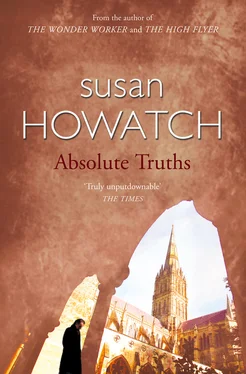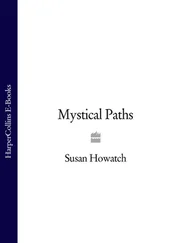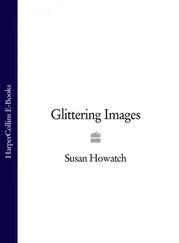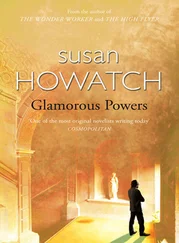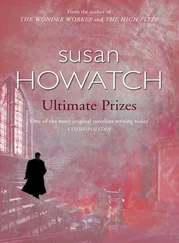And now, having disclosed the disastrous love affair which Lyle had endured, I must disclose just how far we were from being a conventional ecclesiastical family. Lyle had been pregnant at the time of our marriage, and our elder son was not, biologically, my son at all.
I hate to speak of this skeleton in the cupboard, but as I am engaged in painting a picture of my career, marriage and family life in order to set the scene for 1965, I can hardly leave a large central section of the canvas unpainted. If I did, the events of 1965 would be to a large extent incomprehensible.
So let me now turn, with great reluctance, to the skeleton.
We had a code-name for this lover who had nearly destroyed Lyle. It was Samson, a man ruined by his involvement with the wrong woman. I had chosen this sobriquet in a rush triggered by my loathing of the entire subject and had only afterwards reflected that the choice automatically cast Lyle as Delilah, a lady who has never received a good press. However, when I had voiced my misgivings Lyle had said bleakly: ‘And what right have I to receive a good press?’ – a question which had taken me back to the harrowing early days of our marriage when she had been recovering from the most destructive aspects of the affair.
Lyle was my second wife. I had been married for three years in my twenties to a pleasant, innocent girl called Jane whom nowadays I could recall with only the smallest twinge of anguish. We had been fond of each other but unsuited, and our difficulties had been unresolved at the time of her death in a car crash. Fortunately I had managed to come to terms with this tragedy before I journeyed again to the altar in 1937, but although I realised Lyle was curious to know more about her predecessor I felt no desire to pour forth a torrent of information. Perhaps it was fortunate that back in 1937 Lyle was far too bound up with her own unhappy past to spare much time to speculate about mine.
Lyle’s affair with Samson had been conducted with fanatical secrecy because he had been not only a married man but a distinguished married man. In fact – and I hate to admit this but I do need to explain why he was so vulnerable to scandal – he was a clergyman. Of course clerical failures have always existed and of course one must do one’s Christian best to be charitable to those who break the rules, let the side down and drag the Church through the mud, but I have to confess that Samson reduced my stock of Christian charity to an all-time low. I knew I had to forgive him for the damage he had inflicted on Lyle, but unfortunately forgiveness cannot be turned on like a supply of hot water from a well-stoked boiler, and this particular act of forgiveness had remained frozen in the pipes of my mind for some time.
It was not until I returned from the war that I managed to forgive him. At least I assumed I had forgiven him because I realised I had reached the point where I was seldom troubled by his memory. By that time he was not merely tucked away behind a pseudonym, categorised theologically as a sinner who had to be forgiven and thereby rendered as harmless as an exhibit in a museum; he was also dead, a fact which meant the affair with Lyle could never be resurrected. Occasionally his name – his real name – came up in ecclesiastical circles, but not too often, and as the 1940s drew to a close I realised I had consigned him to the compartment in my mind which housed other obsolete images from the previous decade: Edward VIII abdicating the throne, Jack Buchanan singing, Harold Larwood bowling and Shirley Temple dancing. The point about these people, as I told my spiritual director, was that I could think of them without pain; therefore, I reasoned, if I had relegated Samson to this harmless group, I must on some deep psychological level have forgiven him. The hallmark of forgiveness is that it enables the forgiver to live painlessly with the forgiven.
Certainly by 1965 I was satisfied that I had not only forgiven Samson but managed to convert his malign memory into a benign force in my ministry. Indeed it was arguable that my reputation as a bishop tough on sexual sin was the direct result of being obliged to pick up the pieces after a catastrophic adulterous liaison. The 1960s might have been the age of the permissive society, but thanks to my encounter with Samson at Starbridge in 1937 I was going to preach against immorality until I dropped dead or my tongue fell out. After all I had endured, nursing Lyle back to a normal life, no one could have expected me to endorse promiscuity – but no one still alive knew now what I had endured in the early days of my marriage, no one except Lyle herself and my spiritual director, Jon Darrow.
I had had no trouble forgiving Lyle herself for this affair which had already run into difficulties by the time I met her. It is easy to feel compassion for someone one loves, particularly when that someone is emotionally wrecked and verging on the suicidal. What I did find hard to endure was the fact that after we were married she could not love me as much as I loved her. This gradual realisation that she was still far more bound up with Samson than she was willing to admit became so hard for me to bear that I was more than willing to escape from my marriage once the war came. Naturally I told everyone that I was volunteering to be an army chaplain because I wanted to have a hand in Hitler’s defeat – and this was no lie – but the whole truth was rather less palatable. Nowadays, I dare say, I would have wound up in the divorce court. So much for the permissive society! Young people refuse to acknowledge that there can be rewards for enduring the dark days of a marriage; happiness is always supposed to be instantaneous and any deferral is regarded as intolerable. Was there ever such a flight from reality? No wonder the young resort to drugs to ease their disorientation! They have never been taught to face reality and endure it – or in other words, they have never been taught how to survive. The permissive society is a phantom utopia which promises perfect freedom and yet has all its adherents in chains on Death Row.
The mention of chains reminds me of the three years I spent as a prisoner of war. That experience certainly taught me some lessons about how to survive adversity, and when I returned home in 1945 I found the rewards of my long endurance were about to begin. Samson was dead, Lyle was at last ready to be devoted to me and a new era in my marriage had dawned. With relief I prepared to live happily ever after, but did I? No.
I had had a tough time as a prisoner and I returned home with my health damaged. I did manage to reconsummate the marriage, but our efforts to produce another baby failed and tests revealed my poor health was to blame, a diagnosis which did nothing for either my marriage or my self-esteem. Now it was Lyle who endured, Lyle who battled on, Lyle who was not loved as she should have been. She was saved from despair by the doctors’ belief that I would make a full recovery, but I languished, suffering a reaction from my long ordeal and reduced to apathy by the well-known syndrome of survivor’s guilt. Finally an old friend of mine, a doctor called Alan Romaine, took me aside and said: ‘You will get better, Charles, but you’ve got to work at recovery – it’s no good just sitting back and waiting for it to happen.’ He gave me a diet-sheet, listing all the unrationed, nutritious foods I could eat, and he dragooned me into taking up golf again, but I think I was eventually cured not so much by exercise and good nutrition as by his care and compassion.
Did Lyle and I then have our much-wanted third child and live happily ever after? No. Lyle was by this time approaching the menopause and our daughter continued to exist only in our imaginations. Lyle became increasingly upset. I became increasingly upset. Meanwhile the two boys were big enough to be perpetually fighting, yelling and smashing everything in sight. The marriage limped on.
Читать дальше
